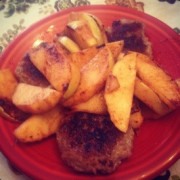Your relationship with food can have a tremendous impact on your spiritual growth. People can often overlook the nourishment of their body when on a spiritual path. Although we are more than our body, it is the vessel that we travel with in this life. Processed foods with sugar and chemical additives have a low vibration, while one ingredient foods from nature actually raise your vibration. Eating whole foods from nature calms your body and mind so that you can be conscious and present in life. On the other hand, eating pastry and having a cup of coffee can actually cause you to feel more anxious. If you are on a spiritual path, I invite you to consider the benefits of truly exploring your relationship with food. Food is a profound doorway into spiritual growth because how you experience food is how you experience life. For example, if you deprive yourself of pleasure and joy in your life, you probably deprive yourself of eating nourishing food. I often see people ‘being good’ all day with food, a.k.a. eating less than they may need or not getting the macronutrients their body requires, and then losing control at night. Our beliefs and habits are ‘mirrored’ in our food choices.
The purpose of this article is twofold. If you’re focused on living life more consciously, I want to pique your interest about the possibility of awakening to your relationship with food. Life changes when you upgrade the way you nourish your body. And after making the connection to spiritual growth and upgrading the way you eat, I would like to share some valuable tips on how to create more efficiency in supporting yourself with high-quality, delicious food. I find that supplying yourself with whole natural foods that are ready to eat in your refrigerator is one of the number one ways to make sustainable changes to your eating habits.
When counseling clients, I notice that they have a sense of what foods might be good for them, but often short change themselves by choosing low-quality, processed foods. Why? One word: EMOTIONS.
Let me share an example of a woman who I’ll call Stella. Stella is highly committed to spiritual growth and came to me because she was working with a spiritual teacher who invited her to notice her feelings. She quickly realized that this was going to be a stumbling block for her because she would numb her feelings by reaching for sugar and processed carbs. She shared that she had been overweight for years and it wasn’t because she didn’t have a sense of how to eat well, it was because she didn’t allow herself to feel her feelings. Over several months, we gently untangled the root causes of her need to numb with food. This exploration allowed her to get in touch with some unresolved pain and frustration that she had been afraid to confront. Stella was willing to face these issues and through the process found her voice and got in touch with what she truly needed more of in her life and it wasn’t sugar and processed carbs. She has since calmed her sugar cravings, lost weight and flourished on her spiritual path which is opening her heart and taking her places she never dreamed she could go.
People often think nutrition is a confusing topic because of the latest fad diets and theories on best ways to eat. These ‘diets’ miss a key component: tuning into your unique body and the signs it gives you about your food choices. I invite you to explore nutrition from the perspective of your body, not your head. You may not want to admit it, but your body is far more brilliant than your head in matters of which foods are most nourishing for you. I invite you to become aware of the effect of foods during digestion and following a meal to learn which foods are best for you. The mind is often cluttered with beliefs around topics such as eating meat, dairy or whole grains based on the endless conflicting information you have received. The body will give you clear signs about what it likes and what it does not if you listen closely. Since nature is not making any new foods; one ingredient, whole foods are the best place to begin your experiment. It is unrealistic to think that something manmade is more nutritious than the profound wisdom of whole foods.
Now, let us transition into ways to make healthy eating a part of your busy life. You should know that eating well is a part-time job and that is not going to change. With that being said, there are ways to create efficiencies in your meal planning and prep. First, it is important to get clear on the fact that you will need to feed yourself 3 to 5 times a day for the rest of your life. Daunting, I know. So, taking the time to create efficiency around meal planning and cooking is invaluable.
You might find it helpful to know that I do not cook during the week. Like most people, I have a busy schedule and the last thing I want to do after a long day is prepare dinner. It would not happen. So, I batch cook every weekend for 3-4 hours. I know what you’re thinking . . . that is a real investment of time. But do consider that people often spend at least one hour a day with cooking and clean-up which would be 7 hours a week. With batch cooking, I’m able to open my refrigerator or freezer to delicious, whole foods that are ready to eat within minutes after heating them. I believe in cooking once and eating numerous times, versus cooking once and eating once.
Here are 8 helpful tips to explore when upgrading the way you nourish yourself:
1. Organize your kitchen. Clear out all unnecessary items. Have important kitchen tools easily assessable.
2. Create a permanent, staple grocery list. Organize it by meal: breakfast, lunch, dinner, snacks, staple items, etc. Include all items you purchase regularly. Leave space to write in ingredients for specific recipes each week. Tailor this list to fit your family’s needs.
3. Make a weekly grocery list. Plan your meals for the week instead of planning one meal at a time and running to the store multiple times a week. Yes, it may take you 45 minutes or more to plan food for the week, but this will save time that can be used to prepare food rather than driving and shopping.
4. If possible, include your children/or partner with food prep to save time and create connection.
5. There are two types of cooking: one that uses a recipe with multiple ingredients and has a more complex flavor; and also what I call simple cooking: a protein, healthy fat, complex carbohydrate and a vegetable. So an example of the simple cooking option would be seasoned baked chicken, sweet potato, green beans with organic butter or olive oil and sea salt. You could also add a whole grain if that feels good for your body. I combine both styles of cooking based on preference and available time.
6. Find a rhythm that suits you. I make my grocery list on Thursday, shop on Friday and cook early Sunday morning. All of these tasks in one day make me grumpy and take more time than I am willing to give. Consider the time of day you have the most energy and make that your cooking time.
7. Make your cooking environment enjoyable. Play your favorite music, listen to a book or podcast, or practice consciousness by being present with the art of cooking. Surrender to cooking. Know that this is the most important way to spend your time at that moment.
8. Most food lasts well for 3-4 days in the refrigerator. Consider freezing half of your batch cooked food and bring it out halfway through the week.
I invite you to make changes over time at a pace that works for you. It is not beneficial to change all of your food at once as abrupt beginnings often have abrupt endings.
MAGGIE CHRISTOPHER is a certified holistic nutrition counselor, psychotherapist and advanced QNRT practitioner. She helps people heal the pain of their past using QNRT so they can thrive which includes eating high-quality whole foods. (This article also appeared in the Edge Magazine.)






